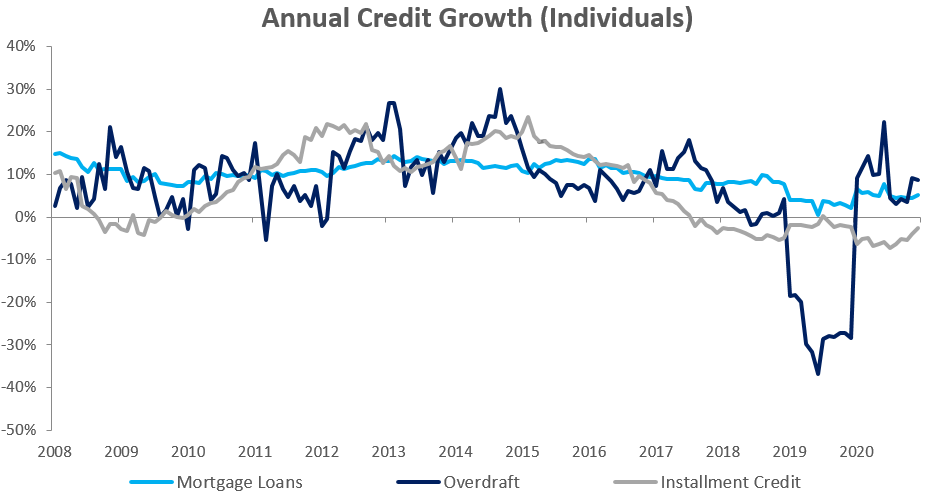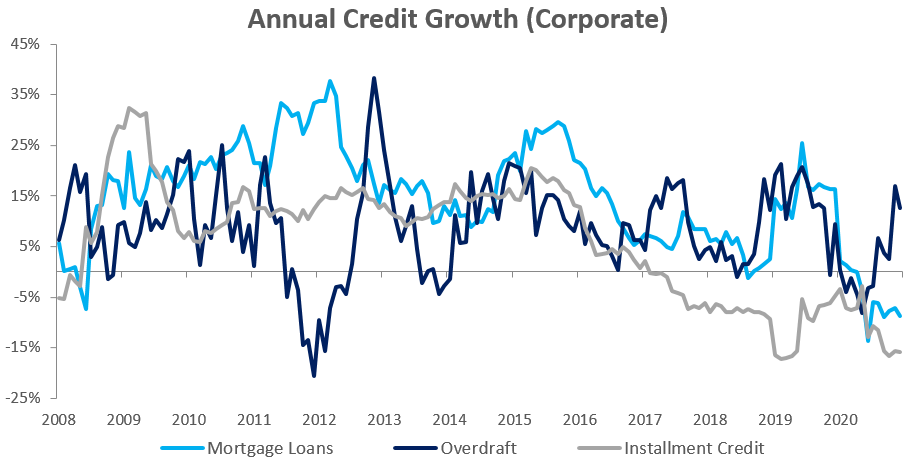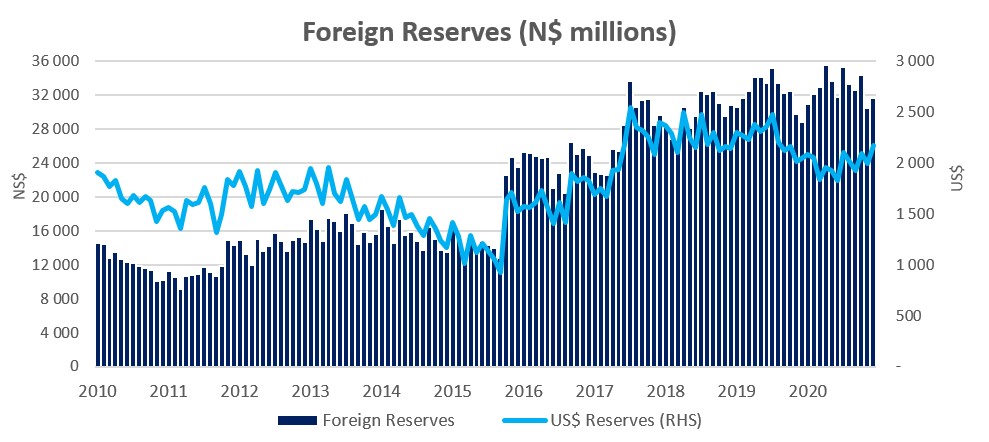
Overall
Private sector credit (PSCE) increased by just N$3.2 million in February, bringing the cumulative credit outstanding to N$105.6 billion. On a year-on-year basis, private sector credit grew by 1.76% in February, compared to 1.50% y/y in January. On a rolling 12-month basis, N$1.82 billion worth of credit was extended to the private sector. Of this cumulative issuance, individuals took up credit worth N$1.52 billion, while N$687.4 billion was issued to corporates. The non-resident private sector decreased its borrowings by N$382.9 million.

Credit Extension to Individuals
Credit extended to individuals increased by 2.6% y/y in February, on par with January’s increase of 2.5% y/y. On a monthly basis, household credit grew by 0.5% following the decrease of 0.7% m/m recorded in January. The value of mortgage loans extended to individuals grew by 0.8% m/m and 4.5% y/y. Instalment credit remained depressed, increasing by 0.1% m/m, but contracting by 4.1% y/y. Overdraft facilities extended to individuals have increased by 0.3% m/m, but dipped back into negative territory, contracting by 0.3% y/y.

Credit Extension to Corporates
Credit extension to corporates contracted by 0.6% m/m after increasing by 1.3% m/m in January. On an annual basis, however, credit extension to corporates increased by 1.6% y/y in February, compared to the 1.0% y/y growth registered in January. Except for the Other Loans and Advances category (or OLA, which is made up of credit card debt, personal and term loans), all other segments contracted on a monthly basis. OLA to corporates grew by 1.9% m/m and 1.4% y/y. The Bank of Namibia (BoN) attributed the increase to increased uptake by corporations in the mining, retail and manufacturing sectors. Overdraft facilities extended to corporates declined by 2.5% m/m, but rose 12.0% y/y. Instalment credit extended to corporates, which has been contracting since February 2017 on an annual basis, remained depressed, contracting by 1.1% m/m and 9.1% y/y in February. Mortgage loans to corporates decreased by 2.1% m/m and declined by 3.3% y/y.

Banking Sector Liquidity
The overall liquidity position of commercial banks improved during February, increasing by N$727.0 million to reach an average of N$1.50 billion. According to the BoN, the increase was largely due to proceeds from mineral sales during the month. The outstanding balance of repo’s fell from N$845.7 million to zero by month-end.

Reserves and Money Supply
As per the BoN’s latest money statistics release, broad money supply rose by N$11.4 billion or 10.0% y/y in February. Foreign reserve balances fell by N$2.02 billion to N$32.4 billion in February. The BoN ascribed the decline to the net purchases of South African Rand by commercial banks.

Outlook
Overall, PSCE growth remained extremely muted in February, increasing by only N$3.2 million during the month. Cumulative 12-month private sector credit issuance is down 68.3% from the N$5.76 billion as at the end of February 2020, with individuals taking up most (83.3%) of the credit extended over the past 12 months.
Economic activity remains very low and a lack of demand means that growth opportunities for businesses remain extremely slim. The subdued uptake of credit (or in some cases deleveraging) by businesses, shows that businesses are currently not investing in capital projects, despite the historically low interest rates in the country. While economic growth is expected to pick up marginally this year, economic activity will most likely remain below 2019 levels. Therefore, we do not expect to see a significant recovery in credit extension in the short to medium term.












